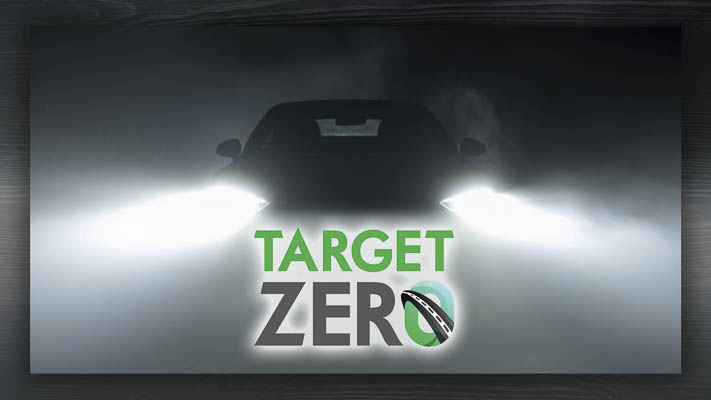
Doug Dahl has a question for Washington drivers.
Doug Dahl
Target Zero
This week, instead of answering one of your questions, I have a question for you. But first, I need you on my side. You’re likely familiar with the following quote, sometimes apocryphally credited to Abraham Lincoln: “My right to swing my fist ends where your nose begins.” There’s a 150-plus history of Americans agreeing with that sentiment, so if that doesn’t ring true for you, you’re the outlier.

Of course, it’s a metaphor, and it’s been applied to many situations besides fists and noses, including arguments against slavery, bars in neighborhoods, and smoking in public. It’s also an argument in favor of a person’s right to do whatever they’d like as long as it doesn’t harm someone else.
Today I’m applying that principle to driving: Your liberty to drive how you’d like ends where it puts other road users at risk. If you think about it, that’s the fundamental principle underlying much of our traffic law. Driving impaired, reckless, distracted, or exceeding the speed limit; these are all prohibited because they create an unnecessary risk to others.
Now imagine that there is a $1.99 device that car manufacturers can install in new cars that can identify if a driver is impaired and prevent them from driving, without the driver having to do anything outside of their normal routine. It could save 13,000 lives a year in the US alone, reduce serious injuries even more, and reduce the burden on emergency responders. That would be amazing, right? I’m guessing most of you would support that.
How about if there was a device that was free and could save 12,000 lives a year by preventing drivers from speeding? Would you be in favor of that? Not as many of you this time. I bring this up because this technology already exists and could be coming soon to a car near you. A new car knows the speed limit. With a bit of programming it could be made to never exceed it.
Starting this year, new cars in Europe will give drivers an audible alert if they exceed the speed limit. A bill in California is proposing something similar. But that wasn’t how the California bill started; it originally intended to prevent vehicles from driving more than ten mph over the speed limit. Is that government overreach or wise transportation planning?
We tend to agree that a person’s right to be impaired ends when they get in a driver’s seat. Why do many of us believe we should have the option to speed, even though it’s prohibited by law and there’s low to no-cost technology that could prevent it?
Maybe it’ll help if I make this less personal. Should we allow school bus drivers to speed? A recent observation study found that half of school bus drivers speed in school zones. Nearly a quarter of those speeding drivers exceeded the speed limit by at least 10 mph. That’s a problem, right? We likely could convince the powers that be to install speed limiters in school buses.
But that would be a bit hypocritical; in that same study about three-quarters of car drivers were speeding. And the school bus fatal crash rate is .2 fatalities per 100 million miles compared to 1.5 fatalities per 100 million miles for passenger vehicles. We kill ourselves and others over seven times more frequently than school bus drivers do.
We’ve tried for decades to warn people not to speed and write a few tickets to those who do, and still every year we have five-digit fatality counts due to speeding. Maybe it’s time to take away the option.
Doug Dahl is the Target Zero manager and communications lead at the Washington Traffic Safety Commission.
Also read:
- POLL: Should Washington Raise the 1% Cap on Property Tax Increases?Clark County Today’s weekly poll asks whether Washington lawmakers should raise the current 1% cap on annual property tax increases.
- Letter: The more you knowCamas resident Anna Miller criticizes a recent remark by Rep. Jasmine Crockett as racist and demeaning, and outlines Republican contributions to civil rights history in her letter to the editor.
- Letter: City vehicles speeding on the highwaysVancouver resident Peter Bracchi raises concerns about excessive speeding by city-owned vehicles, based on GPS data received through a FOIA request.
- Opinion: The stage is set for a battle royaleRep. John Ley outlines key legislative battles in Olympia, raising concerns about tax hikes, tolling, and spending priorities in Washington state.
- Opinion: Olympia’s budget blowout – The taxpayer gets the billNancy Churchill says Washington’s $78.5 billion state budget signals runaway government growth and demands urgent taxpayer pushback.










